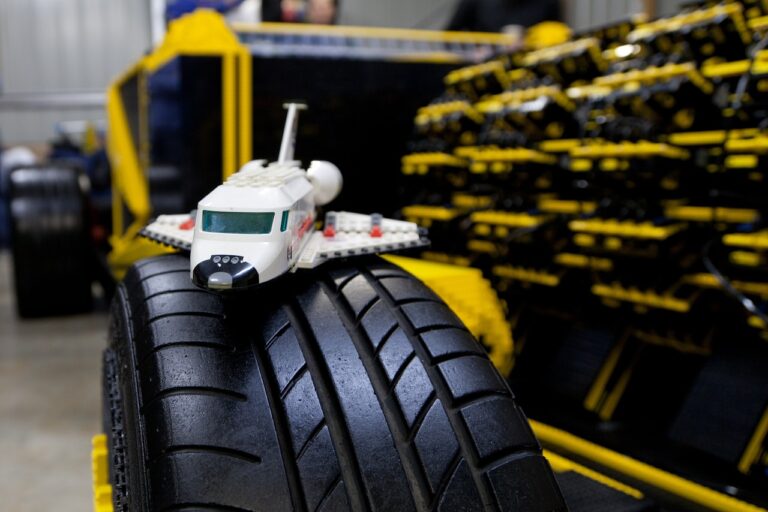Addressing Tire Manufacturing Challenges in Extreme Weather Conditions
gold bet 7, ???? ????????, 11xplay.online:Tire manufacturing is a complex process that requires precision and attention to detail. One of the biggest challenges that tire manufacturers face is dealing with extreme weather conditions. From scorching heat to freezing cold temperatures, these conditions can greatly impact the quality and performance of tires. In this article, we will explore some of the key challenges faced by tire manufacturers when dealing with extreme weather conditions and provide some strategies for addressing these challenges.
Understanding the Impact of Extreme Weather Conditions on Tire Manufacturing
Extreme weather conditions such as high temperatures, humidity, and cold weather can have a significant impact on the tire manufacturing process. High temperatures can cause rubber compounds to break down more quickly, while cold temperatures can make rubber compounds harder and less flexible. Humidity can also affect the curing process of tires, leading to inconsistencies in the final product.
In addition to these challenges, extreme weather conditions can also impact the storage and transportation of raw materials and finished tires. For example, high temperatures can cause tires to degrade more quickly during storage, while cold temperatures can make tires more brittle and prone to cracking during transportation.
Addressing the Challenges of Extreme Weather Conditions in Tire Manufacturing
To address the challenges of extreme weather conditions in tire manufacturing, manufacturers can take several steps to ensure the quality and performance of their products. Some strategies include:
1. Using weather-resistant materials: One of the most effective ways to address the challenges of extreme weather conditions in tire manufacturing is to use weather-resistant materials in the production process. For example, manufacturers can use special additives in rubber compounds to improve their resistance to heat, cold, and humidity.
2. Controlling manufacturing environments: Another strategy for addressing extreme weather conditions in tire manufacturing is to control the manufacturing environment. By maintaining stable temperatures and humidity levels in the production facility, manufacturers can ensure consistent quality and performance in their products.
3. Testing and quality control: Regular testing and quality control measures are essential for identifying and addressing any issues related to extreme weather conditions in tire manufacturing. By conducting thorough testing of raw materials and finished products, manufacturers can identify potential issues early on and take corrective action.
4. Implementing preventive maintenance: Preventive maintenance programs can help manufacturers identify and address issues related to extreme weather conditions before they impact production. By regularly inspecting equipment and machinery, manufacturers can prevent breakdowns and ensure smooth operations.
5. Training and education: Providing training and education to employees on the impact of extreme weather conditions on tire manufacturing can help improve awareness and understanding of these challenges. By empowering employees with the knowledge and skills to address these challenges, manufacturers can enhance the quality and performance of their products.
6. Collaboration with suppliers and partners: Collaborating with suppliers and partners can also help manufacturers address the challenges of extreme weather conditions in tire manufacturing. By working together to develop innovative solutions and share best practices, manufacturers can improve their resilience to extreme weather conditions.
FAQs
Q: How do extreme weather conditions impact the performance of tires?
A: Extreme weather conditions can impact the performance of tires by affecting the properties of rubber compounds, leading to changes in flexibility, hardness, and durability.
Q: What are some common strategies for addressing extreme weather conditions in tire manufacturing?
A: Some common strategies for addressing extreme weather conditions in tire manufacturing include using weather-resistant materials, controlling manufacturing environments, testing and quality control, implementing preventive maintenance, training and education, and collaboration with suppliers and partners.
Q: Why is it important for tire manufacturers to address the challenges of extreme weather conditions?
A: Addressing the challenges of extreme weather conditions is important for tire manufacturers to ensure the quality and performance of their products, maintain customer satisfaction, and protect their reputation in the market.
In conclusion, addressing the challenges of extreme weather conditions in tire manufacturing requires a combination of proactive measures, innovative solutions, and collaboration with suppliers and partners. By taking steps to address these challenges, tire manufacturers can improve the quality and performance of their products and ensure customer satisfaction in all weather conditions.







